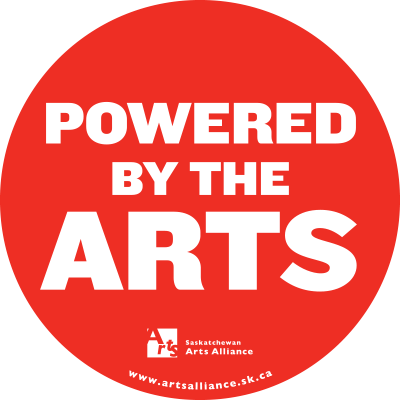Status of the Artist – Where Are We?
An update on Status of the Artist developments and SAA’s position.
June 2005
In 2001, Saskatchewan Arts Alliance launched a campaign to place Status of the Artist back on the political agenda. The result was a vigorous response from Saskatchewan artists. Some advances have been made, in particular, the 2002 Status of the Artist Act. Saskatchewan is the second province, after Quebec, to take a legislative initiative. In September of 2002, Culture Youth and Recreation established a Minister’s Advisory Committee to examine status issues and make recommendations. The Committee’s report was finally made public at Canadian Conference of the Art’s Regina Conference in November 2004.
The Report proposed reforms in several areas. Taxation reform allowing artists grants to be deductible and affirms support for income averaging; reform of the Status Act to add a definition of professional artist; procurement policies to provide access and ensure purchase of art for public buildings; education and information both for government and artists; investigation of pension and benefits, expansion of funding for the Arts Board; a permanent Status advisory body; and supports for voluntary collective bargaining.
This last proposal received little support from Artists’ unions. The government has asked the Committee to reexamine some of the proposals and rejected others. CYR has reappointed the Committee to continue work on issues not yet examined and to revisit some of the original proposals.
As interim measures, SAA has proposed to government that some concrete steps can be taken to advance Status issues (it is after all over 12 years since the 1993 Status Report). A short-term action plan was developed which includes funding supports, pan-department arts policy, amendments to the Status Act to ensure application of the intent (for example, fair fees and contracting ensured), adding collective bargaining rights, endorsement of taxation reform measures and appointment of a Status of the Artist Commission or like body, as called for in the 1993 Saskatchewan Status Report.
Saskatchewan Arts Alliance has urged adoption of a coherent, accessible and fair procurement policy as an early step to advance Status. Likewise, it proposed the development of a government handbook to explain artist’s needs, work patterns and contractual issues. These are straightforward practical steps. The handbook will serve as a critical resource base for government.
Renewed Canadian Conference of the Arts action on Status issues will be of significance in furthering provincial action. Ontario has joined in development and investigation of implementation of Status measures with both government initiatives and independent collective action among arts service organizations and unions.
So we continue to move ahead, albeit slowly.
